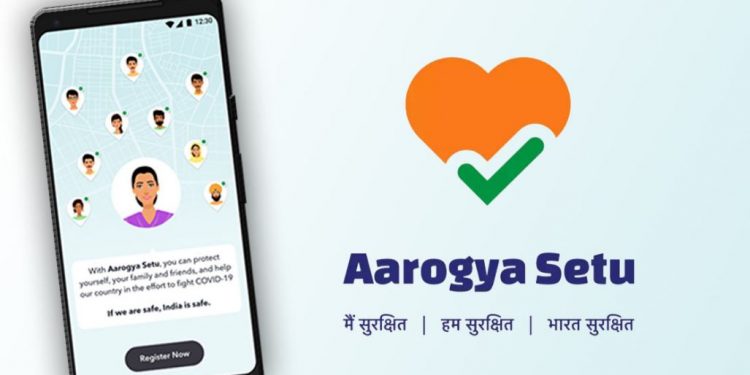New Delhi/Noida: Prashant Kumar who lives in Noida sector 143 often goes to a nearby mall-cum-office complex with his family for some quick bites or gets a bank job done.
The complex does not allow anyone without checking the Covid status on Aarogya Setu app on the visitors’ smartphones, along with the mandatory thermal temperature screening.
Whenever Kumar plans a visit to the complex, he updates the contact tracing app on his smartphone as well as the devices with his family members, filling the self-assessment form by just ticking all the boxes with “none of the above’ symptoms. And the app declares them “safe”.
As cities get unlocked and people begin to visit markets, eating joints, malls and other public places, this attitude is worrisome as this does not paint the real picture, especially if someone who is an asymptomatic Covid patient visits public places even with the ‘safe’ app tag on.
“I only update the app while visiting the complex and leave it without any use for days. It surprises me that it is so easy to just fill in wrong details and enter wherever you want with the ‘you are safe’ tag,” Kumar told IANS.
Kumar said he has even seen people who are not aware of the Aarogya Setu app, downloading it right in front of the complex, filling the self-assessment form quickly with ‘None of the Above’ symptoms and entering the premises, only to remove the app later.
According to latest data from app intelligence company Sensor Tower, Aarogya Setu downloads have decreased significantly in the country, as much as 90 per cent less last month compared to April when it was launched with much fanfare.
As Delhi Metro resumed services after more than five months due to Covid-19 restrictions, officials in some stations, including Noida Sector 16, were seen trying to block entry of people into the station for not having “Aarogya Setu” app on their mobile phones during the initial trial phase.
This despite the fact that in the new travel protocol for passengers published by Delhi Metro Rail Corporation (DMRC) on September 3, it mentioned that “the use of ‘Aarogya Setu App’ for updating health status by passengers will be advisable.”
However, as the services gathered full steam, passengers have hardly reported facing any questions about having the app on the smartphones.
The decision of Bangalore Metro Rail Corporation Ltd (BMRCL) to make Aarogya Setu mandatory for metro commuters was brought to Karnataka High Court’s notice this month after legal services organisation SFLC.IN’s advisory board member Anivar A. Aravind filed a petition challenging the voluntary-mandatory nature of Aarogya Setu and invasion of privacy rights in the absence of a specific legislation governing data collected by it.
Meanwhile, security guards at several outlets in shopping malls across the country are allowing entry only after visitors show they have the app downloaded on their mobile phones.
A similar experience was reported by Aasheesh when he tried to visit a Lifestyle outlet at the City Centre Mall at Sector 10, Rohini in New Delhi.
Visitors to government offices have also reported that they were allowed to enter the offices only after downloading the app.
However, the biggest question is: Is it worthwhile to track people with Covid?
“Several people in my localities have stopped using the app or removed it altogether as it at times creates panic, in case if the person was near a Covid-19 patient. The lack of proper guidance and right messaging, people have started to shun the app, including me,” Nidhi Dixit from West Delhi told IANS.
Aarogya Setu was developed by the National Informatics Centre under the Ministry of Electronics and Information Technology (MeitY) as the country’s Bluetooth-based contact tracing app, with an objective of mapping of likely hotspots and dissemination of relevant information about Covid-19.
The app utilises the data provided by users, to track if you may have come in close contact with a Covid-positive person via Bluetooth and location generated social graphs. It uses contact tracing to record details of all the people you may have come in contact with during normal activities.
The app also consists of features such as the Self-Assessment Test, a complete list of helpline numbers across the country, and a Twitter feed that displays all the latest tweets from the Ministry of Health.






































